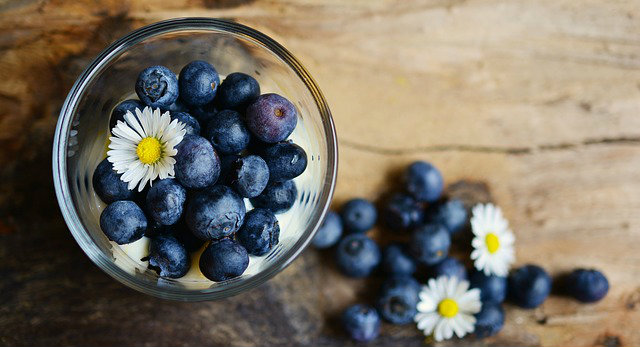
No doubt, most of you want to enjoy a lifestyle that can help you maintain good health and a fit body. At the same time, you probably hope to actually enjoy that lifestyle.
In other words, you may not want to deprive yourself of all your favorite treats or make time for an Olympic-level fitness routine. As a result, some people wonder if they can make just one change at a time by either improving their eating or their exercise habits. When we have so much going on in our lives, it can be easier to get our heads around dealing with a single variable.
Let me first just say that there’s absolutely nothing wrong with starting with a single change to your current lifestyle, but when we approach choosing which thing to change by asking which variable is “better,” then things get a little more interesting.
For example, we may ask ourselves, “Which would have the bigger impact — changing what we eat or amping up our exercise routine?” There’s actually been extensive scientific research studies conducted on this matter, so let’s investigate together.
Because the answer to “should I choose exercise or nutrition” is at the heart of the Whole Life Challenge and why we believe that small changes in one area of your life can make a world of difference — and yet, no single change is the key.

For Most, Good Food Choices Help Them Lose Weight
Can a change to eating habits help you lose weight faster than exercising? For most people, the short answer to this question is yes.
Dr. Shawn Talbott used to direct the University of Utah Nutrition Clinic and works as a nutritional biochemist. Dr. Talbott has reviewed over 700 scientific studies that compared the effectiveness of controlled eating versus exercise for weight loss. He found substantial evidence that eating programs can offer a faster solution.
To put it in real-world terms, you would have to run four miles to exercise away one Big Mac from McDonalds. And that doesn’t include the fries and shake you’re likely to eat, as well. Most people find it easier to just cut the fast-food burger from their daily diets rather than to do the exercise necessary to compensate for those meals.
So, if your only goal was to lose weight, then you might focus on making a change to your eating habits. But let’s keep discussing — because losing weight isn’t everything.
Losing Weight Isn’t Everything
While your scale can help you measure your progress in one way, it doesn’t tell you everything you need to know about your health or body composition. For instance, many athletes weigh a lot more than standard weight charts say they “should,” but they are very healthy and have a low percentage of body fat.
In fact, Dr. Michele Olson, an exercise science and physical education professor from Auburn University, discussed the problem of only thinking in terms of weight loss. According to her, when you eat less food, you might lose weight more rapidly, but you also risk the loss of muscle and bone density if you neglect exercise. When you exercise, your body releases hormones that encourage bone and muscle growth. When you combine exercise with healthier eating habits, you will lose more fat and not just weight.

Hard-Core Isn’t Required to Improve Health
Given all the hype and marketing in the fitness business, it can feel like you have to nearly kill yourself to get any benefit from working out. This causes many people to focus solely on food and opt out of regular exercise. But for many people, regular movement is paramount in improving health, and it doesn’t have to be crazy or complicated.
A report from Science Daily looked at results from hundreds of studies about the benefits of moderate or even light exercise on overall health. The report suggested that people who lead a very sedentary lifestyle should begin by walking five days a week for about one-half hour a day.
If you can’t walk that far, you can begin by doing what you can and try to work up to this goal. As walking becomes easier, you can try to walk faster or push your body with other kinds of exercise. Still, even moderate walking can help reduce the risk of death for any reason by almost twenty percent.
That’s because this sort of light exercise can help lower blood sugar, normalize levels of insulin, lower triglycerides, and increase the “good” kind of cholesterol. That means you can enjoy these benefits:
- Fat loss and muscle growth
- Reduced risk of diabetes, heart disease, and even cancer
- More even moods and better sleep
- More robust immune system and a slower aging process
Nutrition Choices Also Improve Overall Health
An important thing to remember is that we’re talking about health not weight loss as our goal. Yes, you may indeed lose weight on your path to lifelong health, but when we make our food choices it’s not just a math equation about calories. In fact, many foods that you might eat if you are solely focused on weight loss are not only low in calories but also bereft of nutritious content and packed with nasty unnatural ingredients.
Certainly, maintaining a healthy weight for your body type puts less strain on your heart and joints, and that’s a great weight-related goal to keep in mind. But in addition, the Mayo Clinic says that a diet high in fiber and low in sugar can also reduce the risk of diabetes, improve immunity and digestion, and positively impact cholesterol levels.
Fiber-rich food — like fruit and vegetables — may also help you control your portions because they tend to make you feel full for longer and slow down digestion. Processed sugar and processed grains, on the other hand, lead to cravings and are digested very quickly. So you can see that making healthy choices not only supports your weight-loss goals, but also builds the foundation of a bigger picture of health and wellness.

What This Has to Do With the 7 Daily Habits
You can see that when we start to discuss the details of eating and exercise in terms of health that they become hard to unravel from each other. The question of “nutrition or exercise” is really only relevant if weight loss is your only goal, with no long-term vision of wellness in mind.
Why not make the choices that help you avoid serious illnesses and help you feel better in your favorite pair of jeans? In almost all cases, a healthy diet coupled with a reasonable exercise routine will provide you with the best and longest lasting results.
This is why the Whole Life Challenge isn’t a food-only challenge and it isn’t an exercise-only challenge. We incorporate the 7 Daily Habits that we believe all come together to provide the best results. So while you may add on one habit at a time, the ultimate goal is to create a mindfulness of all seven health-promoting components of daily life.
Together these healthy habits create a synergy that no calorie equation would ever get you to.

But if seven new habits sounds like a lot, don’t worry. If you aren’t ready to make a 180-degree lifestyle change, you don’t have to. Plenty of research backs up the fact that even small, positive changes can offer you major benefits.
You might not care to run four miles a day, but if you can work up to walking one mile a day, you can still enjoy many positive benefits. Likewise, swapping out a burger and fries for a salad for one meal a day can help your body function better. Once you notice the benefits of eating a little better or exercising a bit more, it might become easier to introduce more positive changes.
So yes, no single healthy habit is the key to success, but success may well begin with a single habit. In fact, part of the synergy of the 7 Daily Habits is that each one makes incorporating the next one that much simpler.



































